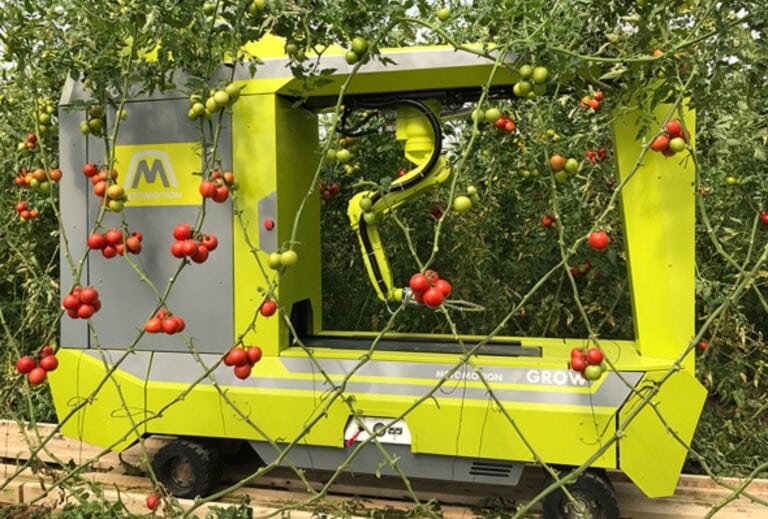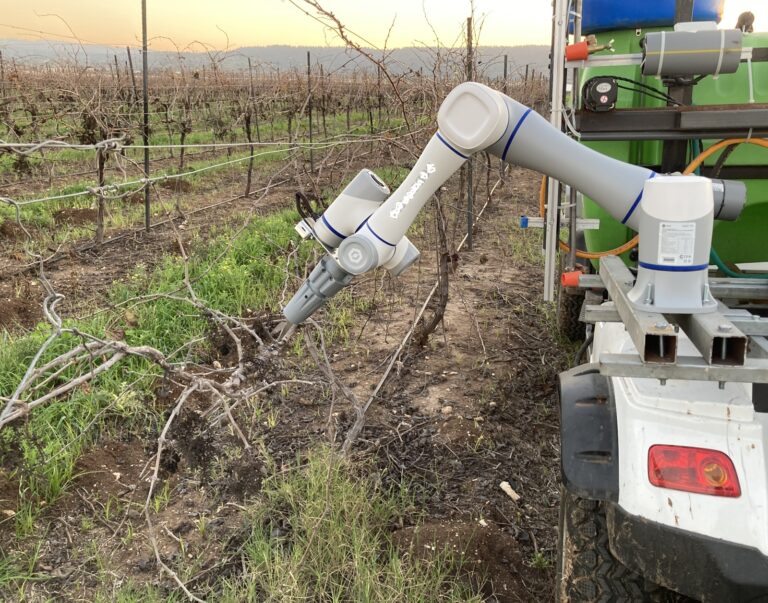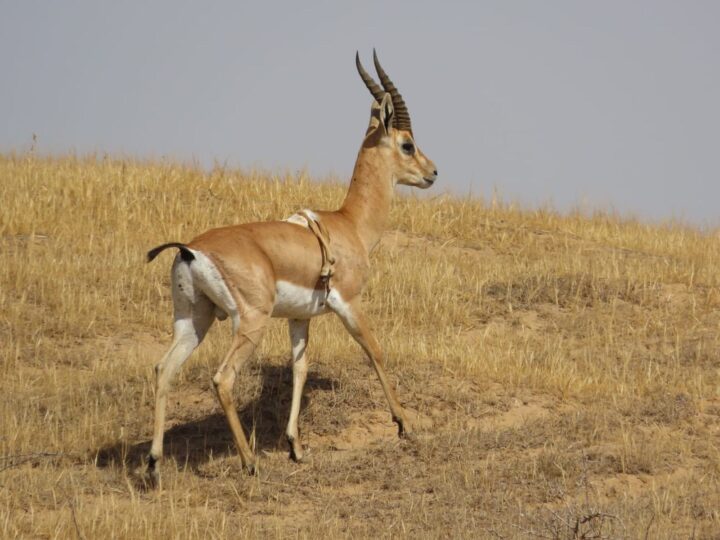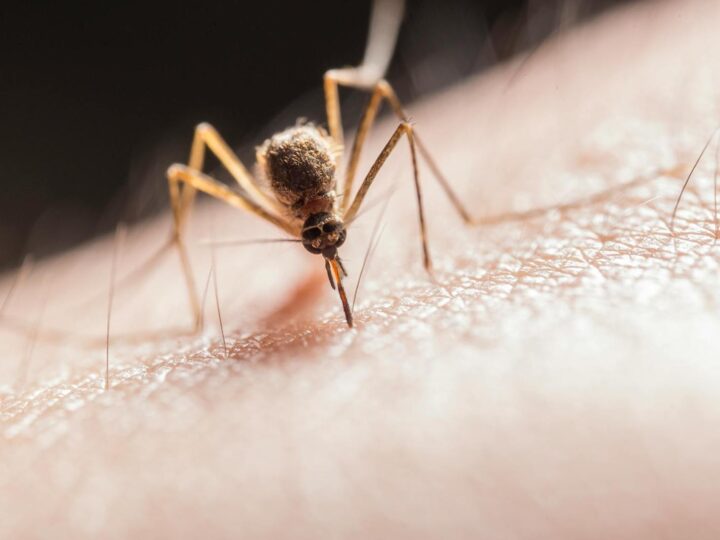During the Gaza conflict, Nitza Kardish has been going twice a week to harvest tomatoes, plant zucchini, and tend pineapples in greenhouses along with thousands of other volunteers.
Farmworkers are getting scarce the world over, and the manpower shortage on Israeli farms was already severe before October 7. Most farmers depended on foreign workers, including from the Gaza Strip.
The Hamas attacks that day, in which many farmers and farmhands were injured, killed or kidnapped, and after which most Asian workers fled the country, left Israel’s farms short of about 30,000 workers.
Kardish, a scientist-turned-investor with a PhD in biochemistry and physiology, is CEO of the Trendlines Agrifood Fund, which invests in companies trying to solve immense challenges in global food and agricultural systems.
Often, she says, fellow farm volunteers from high-tech companies ask her why machines can’t do the tedious and time-consuming jobs of planting, weeding, picking and packing.
There are such machines, she tells them, but they are big and expensive and must be made smaller and cheaper.
Farm robots
Agricultural robotics, Kardish says, is one of the most important niches in agri-tech.
“Robotic automation deals with one of the most critical problems in agriculture: human labor. You need a reliable source of labor and human beings are not reliable. They’re too fragile. We have terrible examples of this in Ukraine and Israel.”
While smallholder farmers in Africa and southeast Asia may never be able to afford agricultural robots, she says, “if you can make it affordable for the majority, or even half of farmers, that will be amazing.”
Kardish says Israelis are using their software and engineering expertise to advance this goal.
“We are not Japan or Germany or Korea, with the infrastructure to build these machines. We know how to build the brains of the machines,” she says.
“We can make them simple and clever. Then they can be produced through joint ventures with companies abroad.”
Here’s a summary of Israeli companies developing robots that perform agricultural labor.
1. Picking fruit from the air
Tevel Aerobotics Technologies makes gas- and electricity-powered flying autonomous robots (FARs) that take off from a base station, pick ripe fruit off trees and gently lower it for collection.
Artificial intelligence (AI), sensors and cameras help each FAR determine which pieces are ready for picking; how best to pick a particular fruit mechanically, and whether any fruit has blemishes rendering it unmarketable. The robots can also prune, thin and spray.
“By revolutionizing the fruit-picking process — which has been done the same way for thousands of years — we are reducing waste and maximizing yield,” says Tevel founder and CEO Yaniv Maor from the company’s world headquarters near Rehovot.
2. Harvesting tomatoes
MetoMotion makes the Greenhouse Robotic Worker (GRoW), a self-driving vehicle that harvests greenhouse tomatoes according to parameters preset by farmers using an accompanying mobile app. GRoW can reduce labor hours by 80 percent and cut harvesting and labor costs in half.
With its 3D vision technology, GRoW identifies fruit based on ripeness. Its robotic arms gently pick the crops on both sides of the row and place them on a conveyor belt inside the machine, which delivers them to crates at the rear of the robot. The system also analyzes data for yield estimation and stress detection.

MetoMotion, founded in 2017 and based in Yokne’am Illit, is in use at farms in The Netherlands and will soon be deployed in greenhouses in France and Finland as well. Moty Schwartz, Chief Operations Officer, said MetoMotion could tweak its core technology to work with other crops in the future.
3. Managing autonomous farm vehicles
Bluewhite offers a software platform enabling one human operator to manage a fleet of autonomous farm vehicles such as tractors, robots and drones performing a variety of tasks from seeding to harvesting.
The company, founded by Israeli air force and autonomous technology veterans, headquartered in Tel Aviv with offices in California, was recently chosen as one of the top 10 new products to be showcased at the 2024 World Ag Expo.
On January 23, Bluewhite announced that it secured $39 million in Series C funding led by Insight Partners. The company, which already works with more than 20 permanent crop growers in the US, will use the funds to further scale its autonomous tractor and farming solutions, and expand into new markets worldwide.
4. Harvest, spray, pollinate
Automato Robotics of Beit Yehoshua is creating an automated workforce for greenhouses. Controlled from a single platform, these robots can harvest, spray, pollinate and inspect indoor crops such as tomatoes.
AI, deep learning and computer vision give Automato’s platform the ability to mount and operate a wide range of robot applications using its own or third-party greenhouse robots.
5. Tractor-drawn robot for fruit trees
Nanovel of Ramot Menashe in northern Israel expects its fruit-picking robot system to be ready for market this year. The company is focusing first on citrus because it’s challenging to pick this type of fruit that grows on tall trees with deep foliage.
Using robotics, computer vision and AI, the tractor-drawn robot identifies ripe fruit and harvests it gently with a combination of grippers and suction. Nanovel’s robot also collects and analyzes orchard data in order to monitor quality and productivity in real time.
6. Robots in the packinghouses
Eshet Eilon offers unique robotic solutions for packinghouses that save manpower and improve efficiency in sorting, packing and grading fruits and vegetables.
Owner/CEO Menashe Tamir says the company has customers in 30 countries including Indonesia, Philippines and Kenya. Its newest robots handle coconuts, pineapples, avocados, stone fruit, a variety of vegetables and even fish.
Eshet Eilon, based on a kibbutz in the Western Galilee since 1935, is now developing robotic solutions for chick sorting and advanced sanitation in packinghouses.
7. Harvesting apples
FFRobotics (the “FF” stands for “fresh fruit”) of Emek Hefer says its fruit harvesting robots, with six robotic arms on each side placing the apples on a conveyor belt leading to a bin filler, are five to 10 times more effective and faster than an average human picker.
In 2014, the company began developing a harvesting robot for the vast North American apple orchard industry in collaboration with the Washington Tree Fruit Research Commission. This system had its commercial debut in 2022.
FFRobotics also does data collection and analysis of fruit picked per tree, acre, and orchard.
8. The robotic bumblebee
Arugga (Hebrew for “flowerbed”) was the first company to commercialize a robot that successfully replicates bumblebee pollination in tomato greenhouses. The Polly robot’s computer vision detects flowers ready for pollination and then applies a calibrated air pulse to vibrate them, replicating buzz pollination. Tests show Arugga yields are as good as, and up to 5% better than, tomatoes pollinated by bees.
In 2023, Arugga signed a commercial collaboration agreement with fellow Israel-based startup ViewNetic, adding ViewNetic’s robotic pest- and disease-detection solutions to the Polly pollination robot for high-tech greenhouses.
Arugga CEO Iddo Geltner said the launch of this joint solution with ViewNetic coincides with the introduction of its second product, a robotic plant-lowering technology.
“With the ViewNetic solution, we can provide a much clearer assessment of plant health in greenhouses to ultimately improve the bottom line for growers.” Customers include greenhouses in Australia and Finland.
9. Automating harvesting and weeding
DailyRobotics is building a cost-effective solution to automate harvesting, weeding and pruning tasks for multiple types of crops. Its software “brain” transforms off-the-shelf robotic arms into intelligent ones that mimic human vision and motion.
Founder Adham Ghazali tells ISRAEL21c that his ScienTech-accelerated startup addresses the acute labor shortage in sustainable but labor-intensive practices such as organic farming.
“The more sustainable the farm, the more severe the shortage becomes, and Daily Robotics bridges this gap,” he says.
10. Trellising by machine
BiomicAgritech of Haifa developed a system that automates the trellising of greenhouse vegetables like tomatoes and cucumbers. This process normally requires hand-tying the plants to vertical wires, then lowering and leaning them individually as they grow.
Founder Eliezer Edelstein, who has a PhD in mechanical engineering, says BiomicAgritech’s tube system does trellising by gravity, while the leaning and lowering is done with the push of a button.
The method, unique in the world, was tested and proven in Israel and in The Netherlands, and saves about 40% of greenhouse labor.
“Our next step is to set up a prototype of a fully robotic greenhouse growing tomatoes and cucumbers. It is all ready on paper and very simple to adopt; all that is required is the investor to help us to carry it out,” he tells ISRAEL21c.
11. Spraying and pruning made easy
Robotic Perception of Modi’in was founded in 2019 to develop an AI-based autonomous precision-agriculture system for fruit orchards and vineyards.
With acceleration from NVIDIA Inception and funding from the European Union’s Horizon 2020 program and the Israel Innovation Authority, Robotic Perception developed a demo site for its autonomous platform that sprays, mows and monitors vineyards.

The company then zeroed in on three specific products: a patent-pending robotic sprayer proven to reduce the use of harmful pesticides by at least 25% while improving results; a robotic arm to prune fruit trees, an essential but labor-intensive task; and a fully autonomous tractor.
Founder and CEO Yoav Banitt says the sprayer and pruner will be validated at AgriFoodTEF, the European Testing and Experimentation Facilities for Agrifood Innovation, with an eye toward commercialization this year.
“We signed a memorandum of understanding with a large tractor manufacturer for the unique robotic pruning arm, and an initial purchase order from a vineyard in Italy for the robotic sprayer,” Banitt tells ISRAEL21c, adding that the company has opened offices in France and Mexico.
















